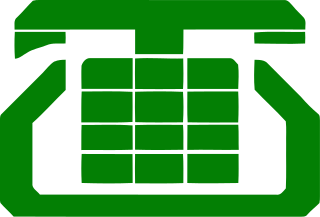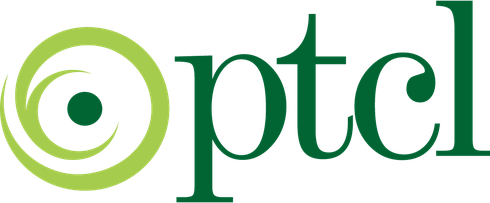
A public call office (PCO) is a payphone facility located in a public place in India and Pakistan. It is also another name in the United Kingdom for a public telephone box (postal addresses for these kiosks sometimes include "PCO").

A public call office (PCO) is a payphone facility located in a public place in India and Pakistan. It is also another name in the United Kingdom for a public telephone box (postal addresses for these kiosks sometimes include "PCO").

In India, staffed and automated (coin-operated payphone) versions of the service are in existence. BSNL, a public sector corporation, has the largest installation of PCOs in India. Mr. R. L. Dube, a Dept of Telecom officer, introduced concept of PCOs in India. As of 2006 there were about 4.2 million (42 lakh) PCOs operating in India, according to the Telecom Regulatory Authority of India (TRAI). [1]
Private sector operators such as Reliance Infocomm, Tata Indicom, Hutch, Idea and Airtel predominantly are prepaid PCO providers and have a moderate number of PCOs in the public landscape.
There are two types of PCOs: landline and wireless. The wireless PCOs use two technologies: CDMA and GSM. Reliance and Tata Indicom are CDMA-based prepaid PCO connection providers. Airtel, Idea and Hutch are GSM-based prepaid PCO connection providers. Initially, the Dept of Telecom, and later BSNL, MTNL and Airtel provided fixed landline postpaid PCO connections. BSNL and MTNL also provide prepaid PCOs.
In BSNL, which is the largest public sector telecom company of India, its Bhopal Unit has for the first time started an Internet café on optical fiber. On August 18, 2013, at Neelbadh locality of Bhopal, the chief general manager of MP Unit of BSNL, Mr. N. K. Yadav, and senior general manager of Bhopal Unit, Mr. Mahesh Shukla, inaugurated PICoF (public Internet café on fiber) at the shop of Mr. Deepak Verma, who was previously running an internet café on a broadband connection provided through copper lines.
In Pakistan, PCOs are provided by Pakistan Telecommunication Company (PTCL), Dancom, Worldcall, and Telecard, amongst others. These companies usually provide calling-card-based domestic and international telecom services.
In the US, staffed and automated (coin-operated payphone) versions of the service are in existence, provided by operators like Verizon and SBC Telecom (credit card operated).
India's telecommunication network is the second largest in the world by number of telephone users with 1179.49 million subscribers as on 31 January 2021. It has one of the lowest call tariffs in the world enabled by mega telecom operators and hyper-competition among them. India has the world's second-largest Internet user-base with 747.41 million broadband internet subscribers in the country.
Nepal's telecommunication network has increased over the years significantly, with the number of telephone users reaching 40,789,198 subscribers as of 14 May 2019.

Bharat Sanchar Nigam Limited is a government owned telecommunications service provider headquartered in New Delhi, India. It is under the ownership of Department of Telecommunications, Ministry of Communications, Government of India. It was incorporated on 1 October 2000 by the Government of India. Its top official is designated as Chairman and Managing Director who is a central government civil servant of the Indian Communication Finance Service cadre or a central government engineer of the Indian Telecommunications Service cadre. It provides mobile voice and internet services through its nationwide telecommunications network across India. It is the largest government-owned-wireless telecommunications service provider in India.
Tata Tele Business Services Limited (TTBSL), formally known as Tata Tele Services Limited (TTSL), is an Indian broadband, telecommunications and cloud service provider based in Mumbai. It is a subsidiary of the Tata Group, an Indian conglomerate. It operated fixed line services under the brand name Tata Tele Broadband in various telecom circles of India. Tata Teleservices used to provide mobile services under Tata DoCoMo.

Mahanagar Telephone Nigam Limited (MTNL) is a wholly owned subsidiary of Bharat Sanchar Nigam Limited which is in turn under the ownership of Department of Telecommunications, Ministry of Communications, Government of India. Headquartered in New Delhi, India. MTNL Provides services in the metro cities of Mumbai and New Delhi in India and in the island nation of Mauritius in Africa. It had a monopoly in Mumbai and New Delhi until 1992, when the telecom sector was opened to other service providers. "Transparency makes us different" is its motto. The Bharat Sanchar Nigam Limited currently holds 100% of its stock. . As of June 2021, it has 3.28 million subscribers. It is also a wholly owned subsidiary of a central public sector unit.
Nepal Doorsanchar Company Ltd., popularly known as Nepal Telecom or NTC, is a state-owned telecommunication service provider in Nepal with 91.49% of the government share. The company was a monopoly until 2003 when the first private sector operator United Telecom Limited(UTL) started providing basic telephony services. The central office of Nepal Telecom is located at Bhadrakali Plaza, Kathmandu. It has branches, exchanges and other offices in 184 locations within the country.

Claro Company is a Mexican company part of América Móvil, a Mexican telecom group. Claro serves clients in Argentina, Brazil, Chile, Colombia, Costa Rica, the Dominican Republic, Ecuador, El Salvador, Germany, Guatemala, Honduras, Nicaragua, Panama, Paraguay, Peru, Puerto Rico and Uruguay. The company's name means "bright," "clear," and also "of course," in both Portuguese and Spanish.

Pakistan Telecommunication Company Ltd., commonly known as PTCL is the national telecommunication company in Pakistan. PTCL provides telephone and internet services nationwide and is the backbone for the country's telecommunication infrastructure despite the arrival of a dozen other telecommunication corporations, including Telenor GSM and China Mobile. The corporation manages and operates around 2000 telephone exchanges across the country, providing the largest fixed-line network. Data and backbone services such as GSM, HSPA+, CDMA, LTE, broadband internet, IPTV, and wholesale are an increasing part of its business. Originally a state-owned corporation, the shareholding of Ptcl was reduced to 62%, when 26% of shares and control were sold to Etisalat Telecommunications while the remaining 12% to the general public in 2006 under an intensified privatization program under Prime Minister Shaukat Aziz. However, the 62% of shares still remain under the management of government-ownership of state-owned corporations of Pakistan.

BSNL Mobile is a division of Bharat Sanchar Nigam Limited which is under the ownership of Department of Telecommunications under Ministry of Communications of the Government of India. It provides both pre-paid and post-paid mobile services as well as many value added services. BSNL Mobile has a pan-India presence with presence in all the 22 telecom circles in India. BSNL Mobile provides all of India services with roaming access, including Delhi, Kolkata and Mumbai, and International roaming access to more than 300 networks across the world.
Hutchison Asia Telecom Group or HAT, is a division of Hong Kong-based multinational conglomerate CK Hutchison Holdings. The division provides telecommunications services to several Asian countries. The division was formerly incorporated as Hutchison Telecommunications International Limited, known as Hutchison Telecom or HTIL in short. It was an offshore company in the Cayman Islands and a listed company in the Stock Exchange of Hong Kong. It operates GSM, 3G and 4G mobile telecommunications services in Indonesia, Sri Lanka and Vietnam under brands 3, Hutch and Vietnamobile.
Sokkankadu is a small village located in Karur District in the Indian state of Tamil Nadu. It is very close to TNPL Pugalur and falls under its jurisdiction. The adjacent villages are Sottaiyur, Moolimangalam, Pandipalayam, Masagoundanpudur and Palamapuram.
Internet in India began in 1986 and was available only to the educational and research community. General public access to the internet began on 15 August 1995, and as of 2020 there are 718.74 million active internet users that comprise 54.29% of the population.

Tata Docomo was an Indian mobile network operator, a wholly owned subsidiary of Tata Teleservices. In October 2017, Bharti Airtel announced a merger deal with Tata Teleservices and the acquisition of Tata Docomo. As of 21 July 2019, all Tata Docomo users are merged with Airtel network and provided with all the Airtel services.
Centre for Excellence in Telecom Technology and Management (CETTM) located in Hiranandani Gardens, Powai, Mumbai is the telecom training centre of MTNL, the incumbent operator of Government of India (GOI). It was founded in 2003 as one of the largest telecom training centres in India and amongst the biggest in Asia. The Centre provides extensive training to corporate employees, students, and MTNL's internal employees in telecom switching, transmission, wireless communication, telecom operations and management.
In India, the Department of Telecommunications (DoT) conducts auctions of licenses for electromagnetic spectrum. India was among the early adopters of spectrum auctions beginning auctions in 1994.

3G mobile telephony was relatively slow to be adopted globally. In some instances, 3G networks do not use the same radio frequencies as 2G so mobile operators must build entirely new networks and license entirely new frequencies, especially so to achieve high data transmission rates. Other delays were due to the expenses of upgrading transmission hardware, especially for UMTS, whose deployment required the replacement of most broadcast towers. Due to these issues and difficulties with deployment, many carriers delayed acquisition of these updated capabilities.

Uzbektelecom joint-stock company is the largest telecommunications operator in Uzbekistan, which covers the entire territory of the Republic with its network.
| Wikimedia Commons has media related to Public call office . |
This article needs additional citations for verification .(March 2007) |